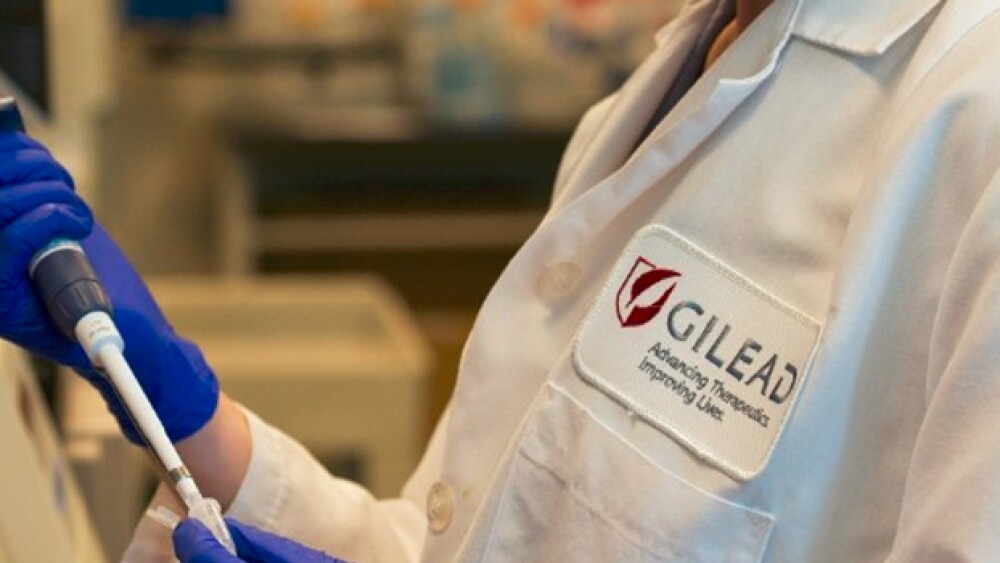Despite continued slumps in sales of its hepatitis C medications, Gilead Sciences saw a robust first quarter, with earnings up nearly 28 percent. That was good news as new Chief Executive Officer Dan O’Day marked his first full quarter with the California-based company.
Despite continued slumps in sales of its hepatitis C medications, Gilead Sciences saw a robust first quarter, with earnings up nearly 28 percent. That was good news as new Chief Executive Officer Dan O’Day marked his first full quarter with the California-based company.
Total quarterly revenues were $5.3 billion compared to $5.1 billion in the same quarter in 2018. The company noted that its quarterly sales broke down as $3.8 billion in the United States, $882 million in Europe and $522 million in other locations. Gilead’s primary revenue drivers for the quarter were its HIV products. The company saw revenues of $3.6 billion, compared to $3.2 billion for the same period in 2018. The increase was primarily driven by higher sales volume as a result of the continued uptake of Biktarvy, which was approved by the U.S. Food and Drug Administration in February 2018. The drug could see increased revenues if it’s approved for a new indication. In October, Gilead announced 96-week results from a Phase III study of its HIV drug Biktarvy for the treatment of HIV-1 infection in treatment-naïve adults. In the ongoing Phase III study, Gilead said Biktarvy was found to be statistically non-inferior to a triple-combination regimen of dolutegravir and emtricitabine/tenofovir alafenamide (50 mg) through 96 weeks of therapy.
Gilead’s CAR-T therapy Yescarta, which it gained from its acquisition of Kite Pharma, also saw a significant boost in revenue during the quarter, as compared to the same period last year. Yescarta (axicabtagene ciloleucel), which was approved in the United States in October 2017, generated $96 million in sales during the first quarter of 2019 compared to $40 million for the same period in 2018. The increase was driven by an increase in the number of therapies provided to patients, Gilead said.
Hepatitis C drugs, which, in many ways made Gilead a household name due to the near cure the medications provided, continue to decline. One year ago, drugs like Harvoni and Sovaldi earned the company $1 billion for the quarter. But those sales slipped to $790 million for the first quarter of 2019. The decline was primarily due to lower patient starts and competitive dynamics, including a decline in price in U.S. Medicare, in 2019, Gilead said.
Gilead’s O’Day, a Roche veteran tapped to helm the company in December, said he was drawn to the role due to the potential of building on the legacy of the company. With this being his first quarterly call for the company, O’Day said he had a chance to see the extent of that potential up close.
“… it’s been really exciting to see the scientific strength from the perspective of being inside the company. I’ve taken part in a series of deep dives into the R&D programs in each of our therapeutic areas. This includes spending time at KITE to dig into our work in cell therapy,” O’Day said, according to a transcript of a conference call.
O’Day said he is enthusiastic about some of the data that was presented during the quarter from the FINCH 1 and FINCH 3 trials in rheumatoid arthritis. In the Phase III FINCH 1 trial, filgotinib achieved its primary endpoint in the proportion of patients achieving an American College of Rheumatology (ACR) 20 percent response at 24 weeks. In the Phase III FINCH 3 trial, filgotinib in combination with methotrexate, was being evaluated as monotherapy in RA patients who are MTX-naïve. Like the FINCH 1 study, the FINCH 3 combination therapy achieved its primary endpoint in the proportion of patients achieving an American College of Rheumatology 20 percent response at 24 weeks.
“Inflammation is one of the three emerging areas for us and we anticipate that filgotinib will be an important future growth driver,” O’Day said.





